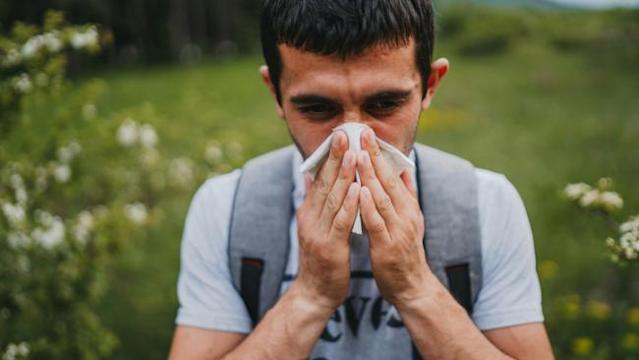Fall allergies-
“Summer is just beginning to wind down and already the scent of pumpkin spice can be smelled wafting from some coffee shops.“
The following written content by Lauren Fox,

Summer is just beginning to wind down and already the scent of pumpkin spice can be smelled wafting from some coffee shops. However, as residents are preparing for a season filled with apple picking, pumpkin carving and colorful leaves, it won’t be pumpkin spice and everything nice for everyone. As seasonal festivities kick off, fall allergies will also be back in full force across parts of the nation, affecting millions of Americans, AccuWeather forecasters say.
Meteorological autumn officially begins on Sept. 1, and astronomical fall begins on the day of the fall equinox, which will take place on Sept. 22 this year.
Fall allergies are typically triggered by ragweed, and the pollen from these types of plants that are common in North America can travel as far as the wind carries it. Another cause of fall allergies is mold, which can grow in piles of damp leaves.

According to the U..S Centers for Disease Control and Prevention (CDC), ragweed is one of the largest producers of pollen and the largest contributor to seasonal allergies in autumn. One ragweed plant can produce billions of pollen grains every year. About 23 million Americans suffer from seasonal allergies, commonly known as hay fever, due to the effects of ragweed, according to the American College of Allergy, Asthma and Immunology (ACAII).
Fall allergies can trigger a plethora of unpleasant symptoms including sneezing, runny nose, congestion, itchy throat, and eye irritation, among others, according to the ACAII. The severity of those symptoms can range from mild to severe and, the Cleveland Clinic notes, can exacerbate symptoms caused by asthma.
The onset of symptoms can begin even before the first official day of fall and the duration and intensity of symptoms can be significantly influenced by the weather. And, this year, distinguishing those symptoms from COVID-19 caused by the delta variant could complicate things even further. Read more from AccuWeather.





